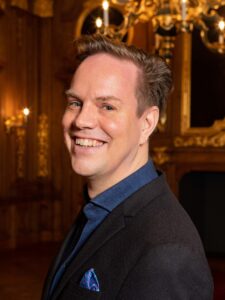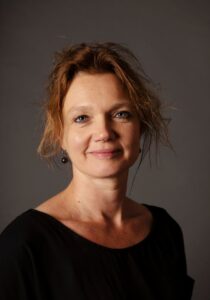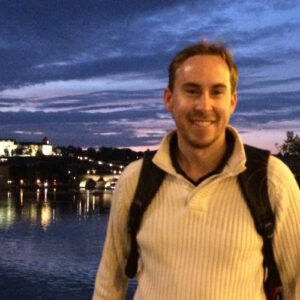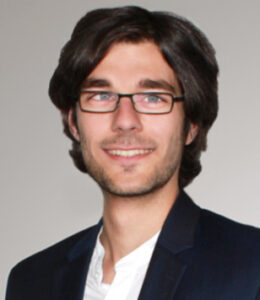Here you can find events organised to further the ATM, such as workshops or open datasprints. We also show other events where the ATM is present.
-
wo19okt202215:00 - 17:00 CESTe-Lab (0.16), BG1, Media Studies, UvA
Event description
In this Salon, organized jointly by the Amsterdam Time Machine (ATM) and CREATE, we discuss how historical knowledge about the management of urban challenges in the past is a potential source of inspiration to design sustainable solutions for the future.
We do so with Boudewijn Koopmans from the Amsterdam Time Machine, Indira van ‘t Klooster from Arcam (Architecture Center Amsterdam), Wietse Balster from 3DAmsterdam, and Clemens Beck from the Friedrich Schiller University (FSU) of Jena. These partners have collaborated at the pilot project ‘Living with water in Amsterdam’, which aims to collect, analyze, and visualize historical data on water in the city. The project has materialised in an exhibition at Arcam showcasing interactive installations of the past, present, and future of Amsterdam’s relation with water in the Kattenburg area. The FSU Jena has made available a semi-automated pipeline and a prototype VR application to visualize historical image-based reconstructions of disappeared buildings.
Recording
https://youtu.be/yoxK3C-8vkI
Programme
15:00 Welcome and introduction by Julia Noordegraaf
15:10 Boudewijn Koopmans, Amsterdam Time Machine: How knowledge of the past helps us deal with the future
15:20 Indira van ‘t Klooster, The exhibit 'Fluid matter' at Arcam
15:45 Wietse Balster, 3D Amsterdam as vehicle to time travel
16:10 Clemens Beck, Jena4D - Shaping a virtual city chronicle
16:30 Discussion
17:00 Drinks at Kapitein ZepposSpeakers
 Boudewijn Koopmans has been project manager of the ATM since mid-2022. As a project manager, Koopmans is involved in forging partnerships in the field of research, the technical infrastructure of the ATM, and multimedia applications. He will be working on the generation of additional funding that will help bringing the Time Machine’s dream closer. Koopmans was educated at the Amsterdam Academy of Banking and Finance and in 2014 he obtained a Master's degree in Art and Culture Studies at the Open University. His career started in telecom & multimedia and in 2008 he moved to the museum sector, where he worked successively at the Cobra Museum, the Royal Picture Gallery Mauritshuis and the National Maritime Museum, responsible for fundraising, relationship management and collaboration with business communities and social organisations.
Boudewijn Koopmans has been project manager of the ATM since mid-2022. As a project manager, Koopmans is involved in forging partnerships in the field of research, the technical infrastructure of the ATM, and multimedia applications. He will be working on the generation of additional funding that will help bringing the Time Machine’s dream closer. Koopmans was educated at the Amsterdam Academy of Banking and Finance and in 2014 he obtained a Master's degree in Art and Culture Studies at the Open University. His career started in telecom & multimedia and in 2008 he moved to the museum sector, where he worked successively at the Cobra Museum, the Royal Picture Gallery Mauritshuis and the National Maritime Museum, responsible for fundraising, relationship management and collaboration with business communities and social organisations. Indira van ‘t Klooster is the director of the Amsterdam Architecture Center (Arcam), where she has been exploring with many parties how a city model with digital layers can be a tool in the use of data for the big design questions for the future. At Pakhuis de Zwijger she presents various events on current themes in architecture. Previously, she was the editor-in-chief of A10 new European architecture magazine and cooperative, as well as senior advisor on architectural policies for politicians, clients and architects at Architectuur Lokaal. She graduated as architectural historian at the University of Amsterdam in 1996.
Indira van ‘t Klooster is the director of the Amsterdam Architecture Center (Arcam), where she has been exploring with many parties how a city model with digital layers can be a tool in the use of data for the big design questions for the future. At Pakhuis de Zwijger she presents various events on current themes in architecture. Previously, she was the editor-in-chief of A10 new European architecture magazine and cooperative, as well as senior advisor on architectural policies for politicians, clients and architects at Architectuur Lokaal. She graduated as architectural historian at the University of Amsterdam in 1996. Wietse Balster has been working for the City of Amsterdam since 2008 and has a background in geo-information/GIS and Spatial Planning. As Product Owner, he has been leading the development of 3D Amsterdam since 2019: a project in which the entire city is recreated in a Virtual 3D environment to be used for a wide range of applications. One is time travel.
Wietse Balster has been working for the City of Amsterdam since 2008 and has a background in geo-information/GIS and Spatial Planning. As Product Owner, he has been leading the development of 3D Amsterdam since 2019: a project in which the entire city is recreated in a Virtual 3D environment to be used for a wide range of applications. One is time travel. Clemens Beck is a Research Associate at the Junior Professorship Digital Humanities at the Friedrich-Schiller-University Jena (FSU) where he coordinates the two research projects 'DFG 3D-Viewer' and 'Jena 4D'. Between 2020 and 2022, he was Research Associate at the Institute of Computer Science at FSU, working on the research project 'CORE-H: a digital research environment for the humanities. Requirements analysis and first prototypical realization using the example of research on southwestern and central German humanism'. Prior to that, he was Research assistant at the Goethe and Schiller Archive of the Klassik-Stiftung Weimar and lecturer at the Ludwig-Maximilians-University Munich, University of Erfurt, and at FSU. He has a background in History and Economics (BA) and in in interdisciplinary medieval studies (MA) and holds a PhD from the Ludwig-Maximilians-University Munich, with a PhD scholarship from the Hans Böckler Foundation and the German Academic Scholarship Foundation.
Clemens Beck is a Research Associate at the Junior Professorship Digital Humanities at the Friedrich-Schiller-University Jena (FSU) where he coordinates the two research projects 'DFG 3D-Viewer' and 'Jena 4D'. Between 2020 and 2022, he was Research Associate at the Institute of Computer Science at FSU, working on the research project 'CORE-H: a digital research environment for the humanities. Requirements analysis and first prototypical realization using the example of research on southwestern and central German humanism'. Prior to that, he was Research assistant at the Goethe and Schiller Archive of the Klassik-Stiftung Weimar and lecturer at the Ludwig-Maximilians-University Munich, University of Erfurt, and at FSU. He has a background in History and Economics (BA) and in in interdisciplinary medieval studies (MA) and holds a PhD from the Ludwig-Maximilians-University Munich, with a PhD scholarship from the Hans Böckler Foundation and the German Academic Scholarship Foundation. Physical Location:
E-Lab (0.16), BG1, Media Studies, UvA
Turfdraagsterpad 9
1012XT Amsterdam
Virtual Location: Zoom link
-
ma10okt202211:30 - 12:30Livestream
Julia Noordegraaf, Vice President of Time Machine Organization and leading the Amsterdam Time Machine initiative, has been invited as a speaker at the Bloomberg CityLab 2022 in Amsterdam.
Bloomberg CityLab, the preeminent global cities summit organized by Bloomberg Philanthropies in partnership with the Aspen Institute, will take place in Amsterdam from October 9 to October 11, 2022. Cities are on the frontlines of today’s major crises – from leading their communities through pandemic recovery to welcoming refugees from global conflicts to combating climate change – and Bloomberg CityLab 2022 will bring together mayors from around the world alongside prominent city innovators, business leaders, urban experts, artists, and activists to discuss and discover replicable solutions to these pressing issues.
In this context, Julia Noordegraaf will illustrate, in an interview with David Dudley, how Time Machine processes historical documents with the help of AI to unlock the ‘Big Data’ of Europe’s Past, and how the latter can contribute to addressing present-day challenges in urban management, design, and development.
The interview will take place on October 10, 2022, from 11:30 am to 12:30 pm.
You can watch the livestream here: https://citylab.bloomberg.org/
-
do01sep202213:00 – 17:00 CESTe-Lab (0.16), BG1, Media Studies, UvA
Omschrijving
Een van de doelen van de Amsterdam Time Machine is om het digitale schetsmodel van historisch Amsterdam tot leven te brengen door deze te vullen met 3D-reconstructies van gebouwen door de tijd heen. Inmiddels zijn er al een aantal 3D-modellen voor verschillende gebouwen en tijden ontwikkeld door onderzoekers, erfgoedprofessionals en/of burgers met een passie voor Amsterdam en haar rijke historie. Om het mogelijk te maken om alle bestaande en toekomstige 3D-modellen in de Time Machine te integreren, is het essentieel dat er een duidelijke workflow wordt ontwikkeld, van de creatie van het model tot de publicatie ervan.
Tijdens deze datasprint (in samenwerking met het 4D Research Lab) zullen onderzoekers met ervaring in 3D-modellering van historisch Amsterdam hun methoden en ervaringen delen in het omgaan met zaken als het gebruiken en citeren van historische bronnen; hoe om te gaan met onzekerheden bij reconstructies; en hoe u modellen publiceert met degelijke begeleidende documentatie. Deelnemers worden ook uitgenodigd om hun eigen input en data mee te nemen om ter plaatse aan 3D-modellen te werken.
Programma, 13:00 - 17:00
- Inleiding en doelen van de data sprint | Julia Noordegraaf (5’)
- Omgaan met onzekerheid in historische 3D-reconstructies | Chiara Piccoli, project Virtual Interiors (10’)
- Documentatie, archivering en publicatiepraktijken | Jitte Waagen, Tijm Lanjouw, 4D Research Lab (10')
- 17e-eeuws Amsterdam VR demo | Tom van Maanen (5’)
- Discussie (20')
- Introductie werksessie: demo over het uploaden van 3D-modellen in Zenodo | Daan Groot (10’)
- Werksessie | Begeleiding: Ivan Kisjes, Daan Groot (2u30’ met pauze)
- Afronding: resultaten en vragen uit de werksessie delen; gezamenlijk ontwerp van de workflow voor publicatie op de ATM-website (30’)
17:00: Borrel bij Kapitein Zeppos
Locatie: e-Lab (0.16), BG1, Media Studies, UvA, Turfdraagsterpad 9, 1012XT Amsterdam
Taal: NederlandsNederlands
